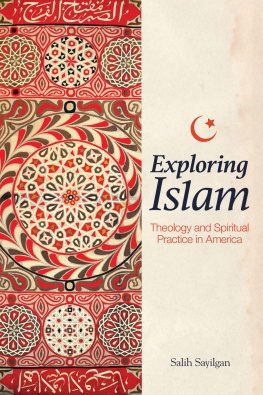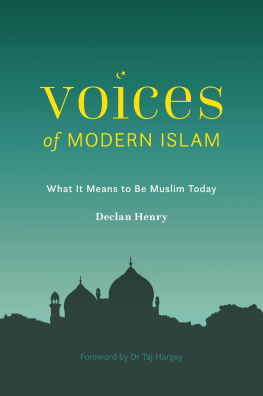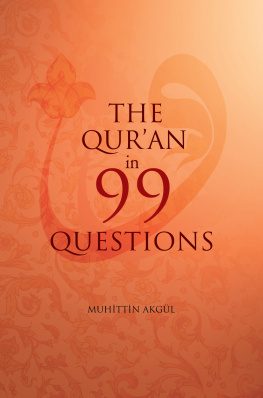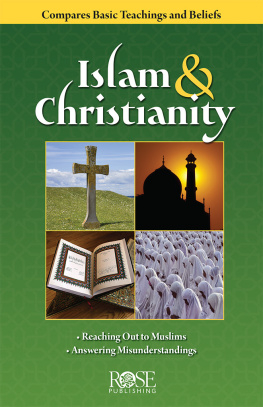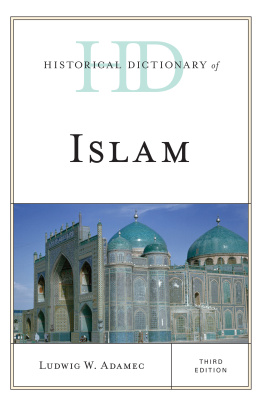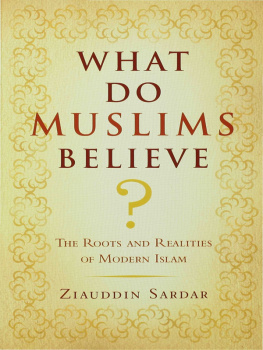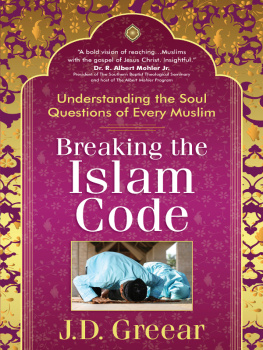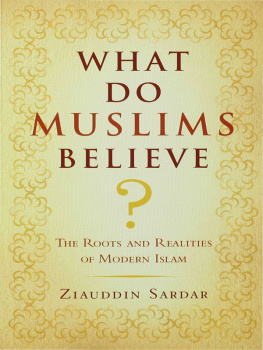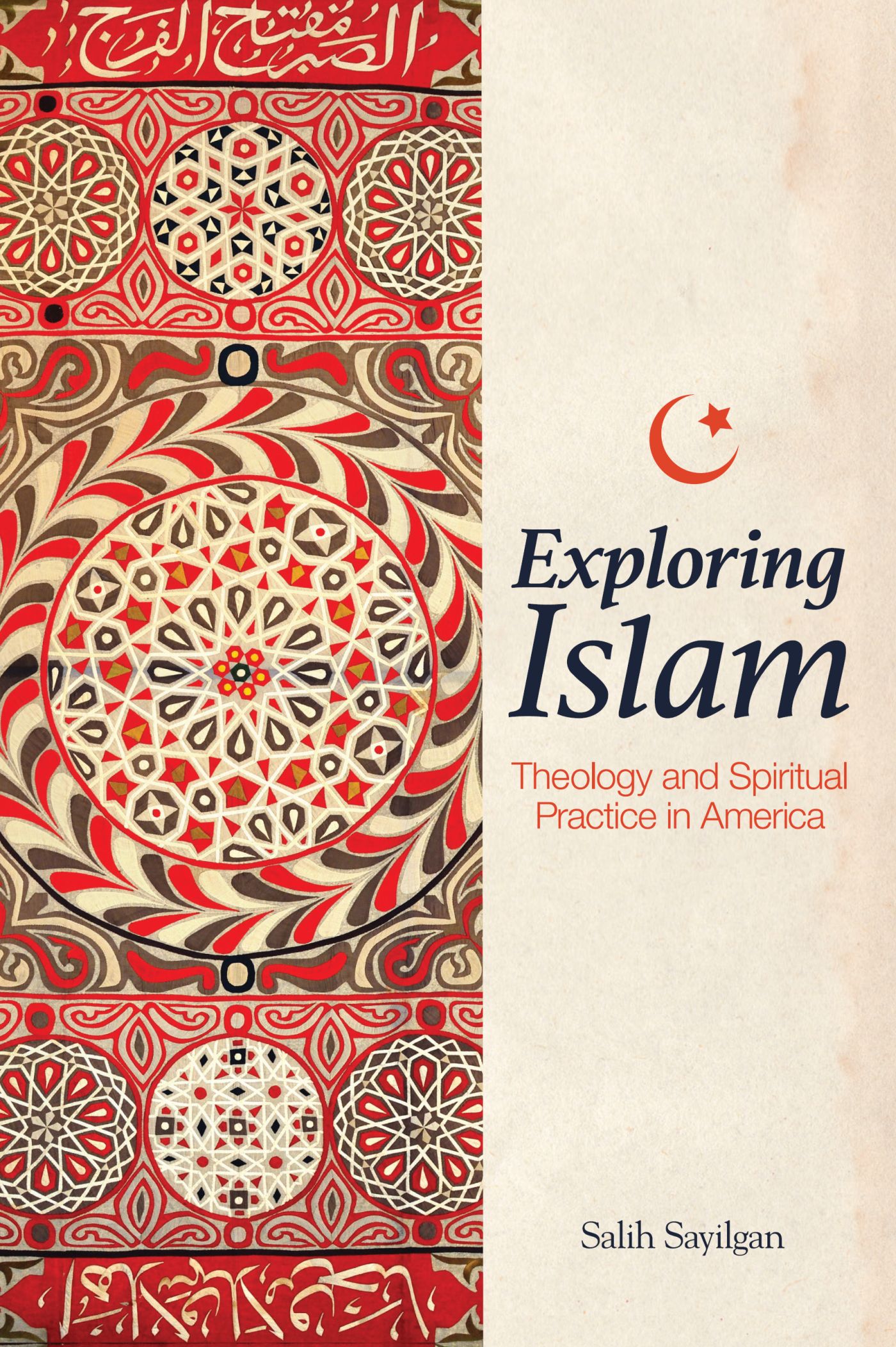
Praise for Exploring Islam
There are introductory books on Islam that are accurate but rather lifeless. There are others that presume too much knowledge on the part of the reader. This volume is one of those rare texts that is utterly readable for the absolute newcomer and yet also conveys the heart of Islam as only an insider and believer can.
Michael Birkel, professor of Christian spirituality, Earlham School of Religion, and author of Quran in Conversation
Many introductory books on Islam leave students with little understanding of how Islam is lived and what the things they have studied mean to Muslims. Exploring Islam overcomes these obstacles through an accessible overview of the central dimensions of Islam that shows how they are integrated with one another and provides examples of how Islam is lived by Muslims from all walks of life. An excellent choice for an introduction to Islam at both college and advanced high school levels.
Joseph E. B. Lumbard, associate professor of Quranic studies at the College of Islamic Studies, Hamad Bin Khalifa University, Qatar
Sayilgan transcends the old-fashioned handbook format for introducing readers to Islamic life and faith. He presents a readable blend of historical and theological analysis along with well-chosen descriptions of individual Muslim faith experiences in the contexts of American society. This book will be useful to both the average reader and the religious studies scholar for gaining an understanding of Islam as a major historic religion and an important tradition of individual and communal spirituality.
John O. Voll, professor emeritus of Islamic history, Georgetown University, and coauthor of Islam and Democracy after the Arab Spring
Salih Sayilgan has written a highly accessible and compelling introduction to Islam, one that does justice to the lived religious experiences of Muslims. Students and readers new to the study of Islam will find Sayilgans book to be an incredible resource as they seek a better understanding of an often misunderstood and maligned tradition.
Todd Green, professor of religion, Luther College, and author of The Fear of Islam: An Introduction to Islamophobia in the West
Salih Sayilgan takes readers on a wonderful, guided exploration of foundational themes of faith and practices in Islam. A must-read for those who may serve as a chaplain to Muslim individuals and families in America. So accessible and concise, this is a good primer to understand the sources of theological and spiritual praxis in Islam.
Bilal W. Ansari, faculty associate in Muslim pastoral theology and co-director of the Islamic Chaplaincy Program, Hartford Seminary
Loving our neighbors requires knowing them. Salih Sayilgans invitation to explore Islam is also an opportunity to get to know Muslims betterthrough their history, theology, spiritual practices, and daily experiences. This remarkable introductory book reminds us that this knowingof each other and of Godis Gods intention for us as diverse people made in Gods image.
The Rev. Elizabeth A. Eaton, presiding bishop, Evangelical Lutheran Church in America
Exploring Islam
Exploring Islam
Theology and Spiritual Practice in America
Salih Sayilgan
Fortress Press
Minneapolis
EXPLORING ISLAM
Theology and Spiritual Practice in America
Copyright 2021 Fortress Press, an imprint of 1517 Media. All rights reserved. Except for brief quotations in critical articles or reviews, no part of this book may be reproduced in any manner without prior written permission from the publisher. Email or write Permissions, Fortress Press, PO Box 1209, Minneapolis, MN 55440-1209.
Portions of chapter 19 are adapted from Salih Sayilgan, An Islamic Jihad of Nonviolence, chapter 3: Jihad in Islamic Thought. Used by permission of Wipf and Stock Publishers, www.wipfandstock.com.
Cover image: zorazhuang/iStock
Cover design: Brice Hemmer
Print ISBN: 978-1-5064-6802-0
eBook ISBN: 978-1-5064-6803-7
While the author and 1517 Media have confirmed that all references to website addresses (URLs) were accurate at the time of writing, URLs may have expired or changed since the manuscript was prepared.
To Zeyneb
And among His signs is the creation of the heavens and the earth, and the variations in your languages and your colors. Truly in that are signs for those who know.
Quran 30:22
Contents
This book builds on the writings of many scholars in Islamic studies, and I am grateful for their work and research. While this is a monograph, in many ways, it feels like a collective work. Numerous people generously offered their time and knowledge for this project.
I am grateful to Heather Lee Miller, Ingrid Berdahl, and Dodd Sims. They read the first draft of the manuscript and made valuable suggestions. Ali Galib Cebeci, Mustafa Tuna, and Amin Gharad provided diligent feedback for some of the chapters. I am indebted to them.
Taalibah Hassan, Merbiye Mollayakup, Tariq and Muslimah Ali Najee-ullah, Mohamed Afzal Norat, Fatima Abdulhamid Mangera, Cemal Gumus, Susan Douglass, Osamah Saleh, Jaye Starr, and Mustafa Boz helped me conduct interviews for some of the chapters. I am thankful to all of them. Some of the American Muslims who told their stories for the chapters remain anonymous. I am grateful to them for sharing their experiences of Islam in America.
My students at Wesley Theological Seminary and Georgetown University read the drafts of some of the chapters. Their questions, comments, and critiques helped me improve this work. My heartfelt thanks go to them. I am also thankful for the intellectual exchanges I had with my colleagues at both institutions.
While working on this project, I was awarded with the Louisville Institutes Postdoctoral Fellowship in 2018. I often discussed this work with my cohort during our gatherings. In fact, it was their input that helped me decide on the title of this book. I am thankful to the members of my cohort and the institutes leadership.
A special thanks goes to my acquisition editor, Ryan Hemmer, and his team at Fortress Press. Ryan believed in this project from the beginning. He graciously accommodated my requests and made the entire process smooth. Ryans editorial skills and theological expertise enriched the manuscript.
Finally, I wish to thank my wife, Zeyneb, who is also specialized in Islamic studies. She was the first reader of this work. Her German critical reading helped me improve the book immensely. While I worked on this project, Zeyneb provided care not only to me but also to our beautiful daughters, Elif and Meryem. This work is dedicated with much love to her.
One of the sites that I toured during my first visit to Washington, DC, was the Library of Congressthe oldest federal cultural institution in the United States. Serving as the primary research repository for Congress, the library was the brainchild of James Madison and was originally established under President John Adams in 1800, when the young countrys capital moved from Philadelphia to the newly built Washington, DC. After the British destroyed the first congressional library in 1814, Congress purchased the personal collection of Thomas Jefferson, whose dedication to assembling a wide variety of books would serve as the philosophical basis for the Library of Congress as we currently know it. Jefferson believed that to be an inclusive, democratic legislature, lawmakers needed information and ideas from all subject areas.
Jeffersons eclectic and broad-minded approach to civic learning is represented on the ceiling of the librarys main reading roomthe central and highest point of the buildingwhich opened in 1887 and bears Jeffersons name. Adorning the reading rooms dome are twelve murals depicting the civilizations or epochs that contributed most to human progress in general and to US culture in particular. Perhaps surprising to contemporary Americans, one of the twelve murals is dedicated to Islamic civilization and its contributions to physics, the branch of science that studies matter and aims to understand how the universe works. Unfortunately, the image of Islam today in the United States shares little with the depiction that has adorned the walls of the Library of Congress for more than a century.
Next page
